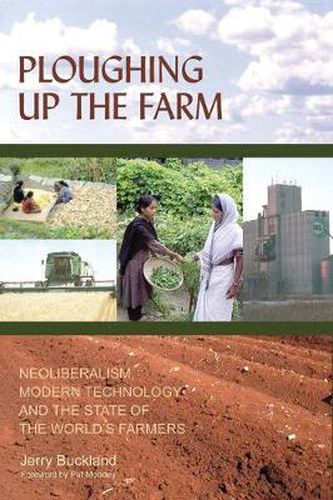Readings Newsletter
Become a Readings Member to make your shopping experience even easier.
Sign in or sign up for free!
You’re not far away from qualifying for FREE standard shipping within Australia
You’ve qualified for FREE standard shipping within Australia
The cart is loading…






The past twenty years - the period of ‘neoliberal globalization’- has seen an erosion of farmers’ livelihoods and food security around the world. Increasing reliance on markets and modern technology has not generated universal farm affluence. This book brings together an impressive array of statistical evidence to show that neoliberalism has brought about rural depopulation in the North, rising rural poverty in the South and environmental problems all around the farming world.
Beginning in the 1980s, neoliberal ideology and accelerated globalization shaped farm policies worldwide. Markets, the cornerstone of neoliberalism, were said to provide higher prices to farmers. But evidence shows that farmgate prices during this period have stagnated. Moreover, market-driven growth has encouraged production of agricultural exports and growing use of chemical inputs. Since world farm prices have been in decline, the consequences for food security and the farm environment are, to say the least, questionable.
Neoliberal globalization is also premised on expanding international trade into the realms of agriculture and intellectual property. Evidence shows that trade liberalization - implemented mainly through structural adjustment programs and the WTO - is often biased against Third World farmers and small farmers everywhere. The power of transnational corporations in agricultural trade and farm technology has grown by leaps and bounds. Evidence shows that the corporate-driven GM-food revolution has had little positive effect on farm livelihoods or food security. To arrest these trends, Jerry Buckland calls for farm policies founded on farmer-led food security and a democratization of the global institutions that have had such detrimental effects on the world’s farmers.
$9.00 standard shipping within Australia
FREE standard shipping within Australia for orders over $100.00
Express & International shipping calculated at checkout
The past twenty years - the period of ‘neoliberal globalization’- has seen an erosion of farmers’ livelihoods and food security around the world. Increasing reliance on markets and modern technology has not generated universal farm affluence. This book brings together an impressive array of statistical evidence to show that neoliberalism has brought about rural depopulation in the North, rising rural poverty in the South and environmental problems all around the farming world.
Beginning in the 1980s, neoliberal ideology and accelerated globalization shaped farm policies worldwide. Markets, the cornerstone of neoliberalism, were said to provide higher prices to farmers. But evidence shows that farmgate prices during this period have stagnated. Moreover, market-driven growth has encouraged production of agricultural exports and growing use of chemical inputs. Since world farm prices have been in decline, the consequences for food security and the farm environment are, to say the least, questionable.
Neoliberal globalization is also premised on expanding international trade into the realms of agriculture and intellectual property. Evidence shows that trade liberalization - implemented mainly through structural adjustment programs and the WTO - is often biased against Third World farmers and small farmers everywhere. The power of transnational corporations in agricultural trade and farm technology has grown by leaps and bounds. Evidence shows that the corporate-driven GM-food revolution has had little positive effect on farm livelihoods or food security. To arrest these trends, Jerry Buckland calls for farm policies founded on farmer-led food security and a democratization of the global institutions that have had such detrimental effects on the world’s farmers.